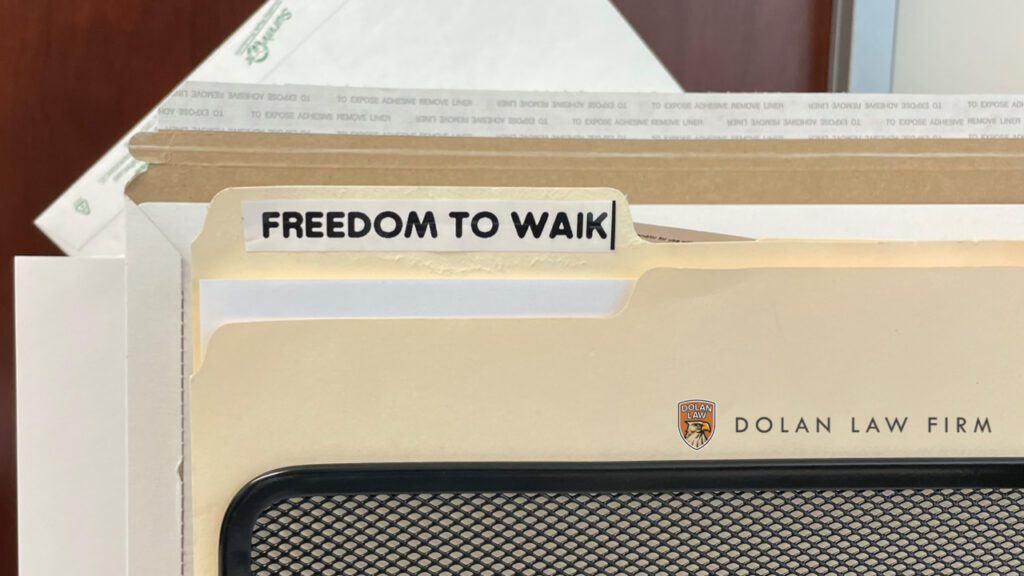Written By Chris Dolan and Alexandra Cotroneo
This week’s question comes from Betty from San Francisco, who asks: Can you explain what The Freedom To Walk Act is all about? Why is jaywalking safe and better for pedestrians?
Hi Betty,
That is a great question, and I am sure many people are asking themselves the same thing.
This past September, Governor Gavin Newsom signed The Freedom to Walk Act, Assembly Bill 2147, sponsored by Assemblymember Phil Ting (D-San Francisco). This new law will go into effect on January 1, 2023. The Freedom to Walk Act allows pedestrians to jaywalk without the fear of ticketing. While jaywalking is still technically illegal, the Act precludes police officers from issuing tickets. Police can, however, ticket for jaywalking when it is unsafe, for instance, when there is an immediate risk of a collision with a vehicle. Hence, pedestrians must still exercise due care for their safety, and so must drivers for the safety of any pedestrians crossing a roadway.
The crime of jaywalking resulted from the automotive industry’s efforts to shift the public’s mindset on who owned the road: the automobile or the pedestrian. In the 1920s, roads were a communal space where pedestrians, carriages, vehicles, and vendors existed together. As cars became more popular and sales increased, so did pedestrian deaths. While memorializing killed pedestrians, communities blamed drivers and their automobiles. These deaths prompted a growing sentiment that vehicles should be restricted, including their speed limit. Automakers quickly changed the existing pedestrian laws while launching a media campaign to shame pedestrians who failed to use crosswalks. Thus, the term “jaywalking” came into existence. Jaywalking was a derogatory term used to reference someone from the country who was ignorant of city life. Ultimately, the public shaming campaign headed by the automobile industry succeeded: authorities criminalized jaywalking, and the onus shifted from the automobile to the pedestrian. Since then, police have not equitably enforced jaywalking laws.
According to data collected from 2018-2020 by the California Racial and Identity Profiling Act, police disproportionately ticket Black pedestrians for jaywalking. Black pedestrians are four and a half times more likely to be stopped for jaywalking than White pedestrians. This inequitable enforcement has led to dangerous police interactions with pedestrians of color. Chinedu Okobi is one instance where the unfair and disproportionate enforcement of jaywalking resulted in tragedy. In 2018, police stopped Chinedu Okobi for jaywalking in San Mateo, California. The confrontation quickly escalated, and excessive force was used, resulting in the death of Chinedu Okobi, an unarmed black pedestrian.
With the passage of The Freedom to Walk Act, pedestrians will now have fair and equitable use of roadways. The Freedom to Walk Act will remove a pretense for over-policing pedestrians of color, eliminate the financial burden of fines and fees to those disproportionately ticketed for jaywalking, and grant rightful use of roadways to both pedestrians and motorists.
Nonetheless, pedestrians and motorists must still use precautions and safely use the roads, even if police will no longer ticket pedestrians for jaywalking. However, you have the right to pursue pedestrian accident compensation as an injured pedestrian. Contact a personal injury lawyer who will advocate for your rights.










